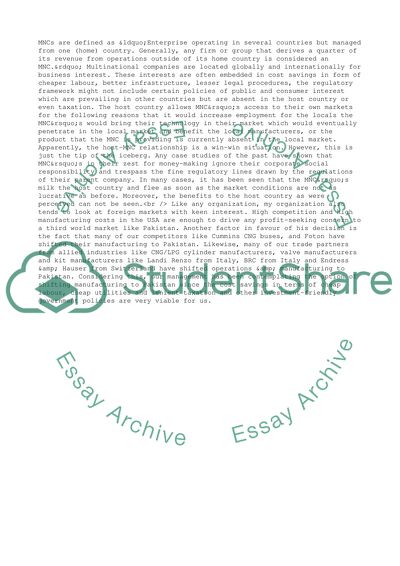Cite this document
(Legal & Ethical Issues Underlying in the Operations of MNCs Research Paper, n.d.)
Legal & Ethical Issues Underlying in the Operations of MNCs Research Paper. Retrieved from https://studentshare.org/management/1715892-is-it-ethical-to-allow-mncs-a-free-hand-in-operating-in-the-host-country
Legal & Ethical Issues Underlying in the Operations of MNCs Research Paper. Retrieved from https://studentshare.org/management/1715892-is-it-ethical-to-allow-mncs-a-free-hand-in-operating-in-the-host-country
(Legal & Ethical Issues Underlying in the Operations of MNCs Research Paper)
Legal & Ethical Issues Underlying in the Operations of MNCs Research Paper. https://studentshare.org/management/1715892-is-it-ethical-to-allow-mncs-a-free-hand-in-operating-in-the-host-country.
Legal & Ethical Issues Underlying in the Operations of MNCs Research Paper. https://studentshare.org/management/1715892-is-it-ethical-to-allow-mncs-a-free-hand-in-operating-in-the-host-country.
“Legal & Ethical Issues Underlying in the Operations of MNCs Research Paper”. https://studentshare.org/management/1715892-is-it-ethical-to-allow-mncs-a-free-hand-in-operating-in-the-host-country.


